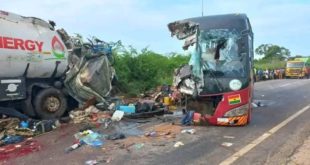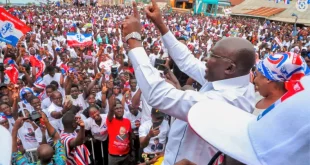A number of demonstrations against illicit mining operations have led to the arrest of many activists in Ghana, marking the most recent episode in the continuing Galamsey conflict. The government’s handling of its fight against illicit mining, known locally as “galamsey,” which is still wreaking devastation on the nation’s ecology and water supplies, is the cause of growing tensions.
Numerous organizations have widely criticized the arrests and accused the government of stifling opposition. On the other hand, President Nana Addo Dankwa Akufo-Addo denied in a recent interview with France 24 that the arrests were made with political motivation or with the intention of quelling demonstrations. In support of the rule of law and the judiciary’s independence, the president said:
“I’m not responsible for jailing people in Ghana. The courts in Ghana are independent institutions, and they have been all through this period of the Fourth Republic. People misconduct themselves, and they’re brought before court. It’s for the court to deal with them. That’s not a matter… It has nothing to do about politics. It has nothing to do with the executive.”
President Akufo-Addo addressed worries that his administration would be employing police action to quell protesters by emphasizing that he has no problem with public demonstrations and that activism and protests have played a significant role in his own political career. He emphasized that individuals detained are being penalized for actions that put them in legal trouble rather than for participating in protests:
“How can the president, who himself, his political career was aided by leading protests, have problems with protests? I don’t have problems with protests. And nothing is done in Ghana to prevent people from airing their views on anything.”
The president’s comments coincide with a growing controversy around Galamsey, where local populations suffer from deforestation and contaminated waterways as a result of illicit mining operations. There have been obstacles to the government’s attempts to clamp down on Galamsey, such as claims of corruption and inefficient law enforcement. While government officials claim that communal responsibility and respect to the rule of law are necessary in the battle against Galamsey, protestors contend that the government has not gone far enough in addressing the issue.
The arrests and ensuing legal actions will probably continue to be a major topic of conversation in Ghana over environmental preservation, citizen rights, and governance as long as the demonstrations persist.
Source: Ghanatodayonline.com
 Ghanatodayonline.com News, Politics, Health, Education & More
Ghanatodayonline.com News, Politics, Health, Education & More



